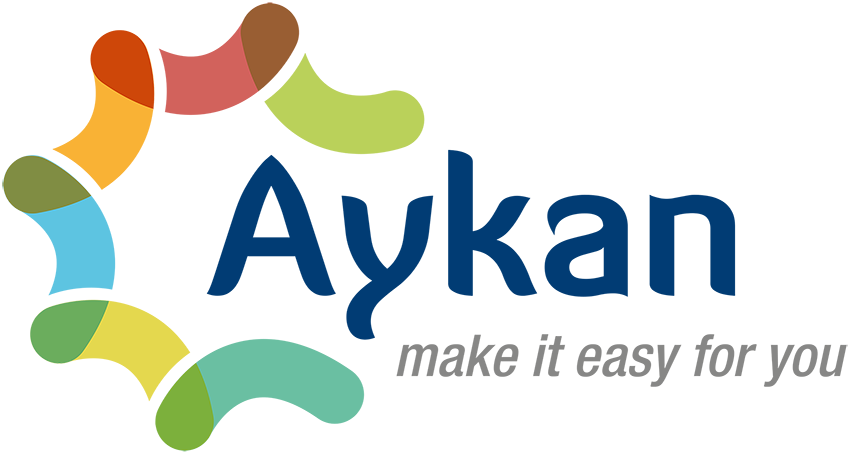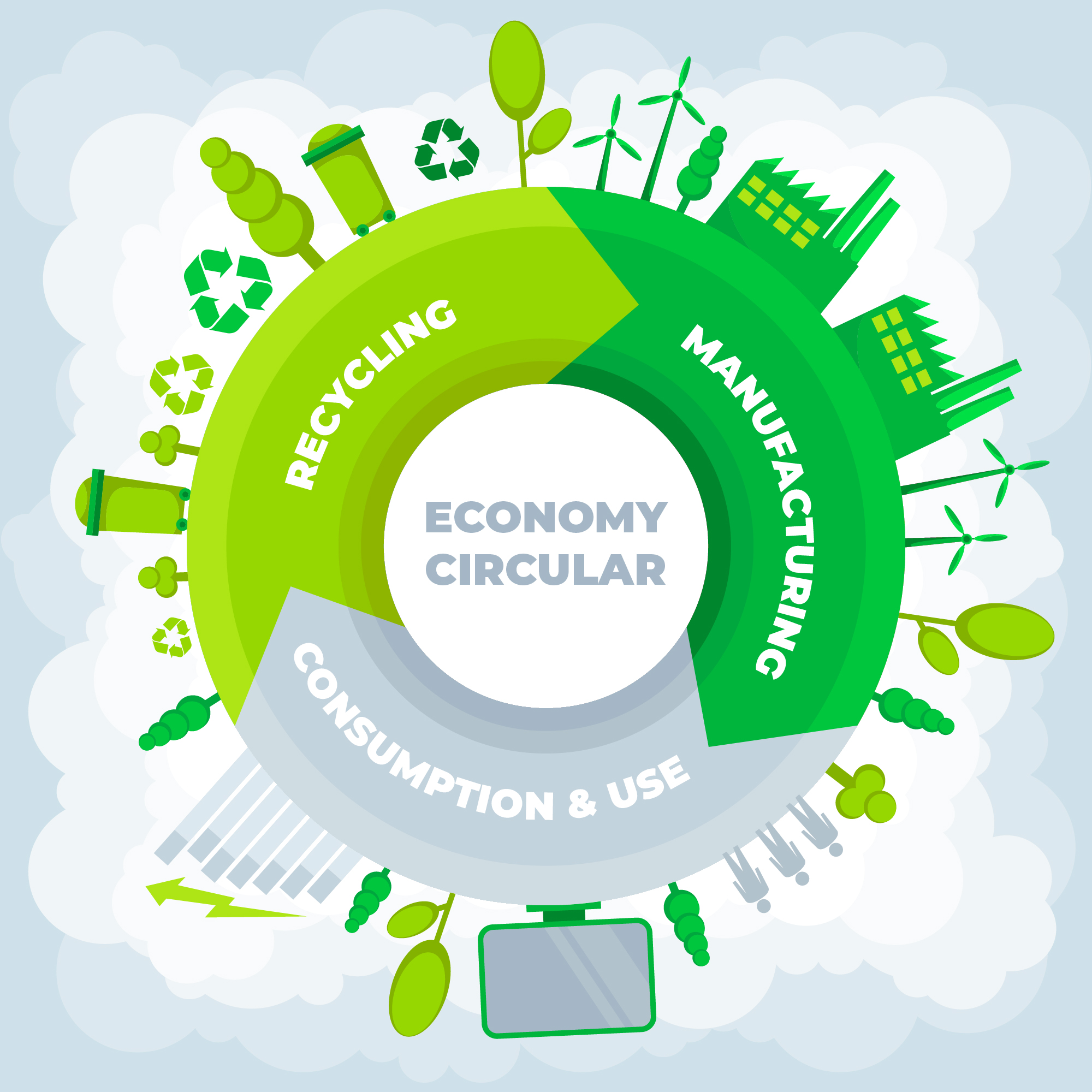In an era where environmental sustainability is paramount, the transition from a linear economy to a circular economy has become essential. This shift emphasizes minimizing waste and maximizing resource efficiency by keeping products and materials in use for as long as possible. Eco-friendly rental and resale online marketplaces are at the forefront of this transformation, facilitating sustainable consumption and contributing significantly to the circular economy.
Understanding the Circular Economy
A circular economy is a system designed to keep materials and products in use for as long as possible, minimizing waste and maximizing resource efficiency. The Save Our Seas 2.0 Act defines a circular economy as one that takes a systems-focused approach, incorporating industrial processes and economic activities that are restorative or regenerative by design. This model prioritizes resource optimization, ensuring that materials maintain their highest value for as long as possible while reducing waste through superior product design, material innovation, and improved business models.
Unlike the traditional linear economy—where resources are extracted, used to make products, and eventually discarded—a circular economy reduces material consumption, redesigns products to be less resource-intensive, and repurposes waste as a valuable resource for manufacturing new materials and products.
Why is a Circular Economy Important?
A circular economy is essential in the fight against climate change, as it helps reduce waste, conserve resources, and lower greenhouse gas emissions. The United Nations’ International Resource Panel reports that nearly 50% of global emissions stem from natural resource extraction and processing. To mitigate this, the EPA is developing strategies to minimize waste, promote resource recovery, and create a more sustainable system. Beyond environmental benefits, a well-implemented circular economy also strengthens economies and enhances social justice.
Historically, underserved communities have been disproportionately affected by pollution, as many landfills, factories, and waste processing facilities are located near low-income areas. The EPA’s “Circular Economy for All” initiative aims to address these disparities by reducing toxic materials, promoting resource reuse, and fostering safe, sustainable jobs. By shifting to a circular economy, we can protect the environment, drive economic growth, and build healthier, more equitable communities for future generations.

The Role of Eco-Friendly Rental and Resale Marketplaces
Online platforms dedicated to renting and reselling goods are key drivers of the circular economy, promoting sustainability by extending the lifespan of products and reducing the need for continuous new production. By facilitating the reuse and sharing of underutilized assets, these marketplaces make sustainable consumption more accessible and convenient. Whether it’s fashion, electronics, furniture, or tools, consumers can borrow, rent, or buy secondhand, significantly reducing waste and lowering their carbon footprint.
Benefits of Sustainable Sharing Platforms
1. Resource Efficiency and Waste Reduction:
By enabling the reuse, refurbishment, and redistribution of products, rental and resale platforms help reduce the demand for raw materials, minimizing deforestation, water consumption, and energy-intensive manufacturing. For example, clothing rental services like Rent the Runway or secondhand fashion platforms like ThredUp and Vestiaire Collective extend the lifecycle of garments, counteracting the negative environmental effects of fast fashion.
Similarly, peer-to-peer rental marketplaces for tools, appliances, and electronics prevent unnecessary manufacturing and reduce electronic waste (e-waste), which is one of the fastest-growing waste streams globally.
2. Economic Advantages:
The sharing economy has seen rapid growth, with the global market size projected to rise from $194.14 billion in 2024 to $246.18 billion in 2025, reflecting an impressive CAGR of 26.8%. This boom creates new business opportunities for both established companies and individuals, encouraging entrepreneurship and innovation. Businesses can leverage rental and resale models to diversify revenue streams, while consumers benefit by monetizing underutilized goods. Platforms like Airbnb (home rentals), Turo (car rentals), and Fat Llama (equipment rentals) exemplify how sustainable business models can be both profitable and eco-conscious.3. Environmental Impact:
Sustainable sharing platforms significantly contribute to environmental conservation by lowering carbon emissions linked to manufacturing, transportation, and disposal. Producing new goods requires energy, raw materials, and contributes to industrial pollution, whereas renting and reselling extend the usability of existing products, thereby reducing waste accumulation in landfills.
For example, resale furniture platforms like Kaiyo or AptDeco help curb deforestation by reusing wooden furniture instead of manufacturing new pieces. Additionally, ride-sharing and car rental platforms reduce the number of privately owned vehicles, helping to lower overall emissions.

In the transportation sector, ride-sharing and car rental platforms like Uber, Lyft, and Zipcar reduce the need for private vehicle ownership, leading to lower production demands and decreased traffic congestion, ultimately reducing carbon emissions. Additionally, bike-sharing programs and electric scooter rentals promote eco-friendly urban mobility, cutting down on fossil fuel consumption.
By fostering a circular economy, these platforms not only extend product lifespans but also encourage more sustainable consumer behaviors, helping to minimize environmental harm in the long run.
4. Enhanced Consumer Access and Affordability:
Sustainable sharing platforms democratize access to high-quality goods by providing affordable alternatives to ownership. Instead of making costly purchases, consumers can rent or buy pre-owned products at a fraction of the price, making luxury and premium items more accessible. This shift in consumer behavior not only promotes mindful spending but also helps reduce overconsumption and waste.
For instance, services like Library of Things allow users to borrow equipment they might only need occasionally, such as power tools, camping gear, or kitchen appliances, eliminating the need for unnecessary purchases. Similarly, fashion rental services like Rent the Runway and Nuuly enable consumers to enjoy designer clothing without the expense of ownership, reducing textile waste and promoting circular fashion.
Additionally, pay-per-use models in industries like transportation, electronics, and home essentials provide consumers with access to products without the financial burden of full ownership. Subscription-based services for furniture and electronics, such as Fernish and Grover, allow users to rent high-end products and upgrade as needed, supporting both affordability and sustainability.
By prioritizing shared access over outright ownership, these platforms foster a culture of economic efficiency, sustainability, and conscious consumption, benefiting both consumers and the environment.
Recommended Blog: How to Choose the Best Marketplace Solution for Your Business Needs.
Aykan Built a Rental and Resale Marketplace
MaskinMarkedet – Rental Marketplace
MaskinMarkedet is Denmark’s most trusted rental marketplace for construction equipment, designed to bring efficiency, transparency, and ease to the industry. Traditional equipment rental has long been hindered by manual processes, limited availability, and a lack of price transparency, making it difficult for contractors to find the right machinery when needed.
Recognizing these challenges, MaskinMarkedet is a digital platform that streamlines the entire rental process. By providing a centralized hub where rental providers can manage their fleets and customers can effortlessly search, compare, and book equipment, eliminate inefficiencies and lost opportunities.
Their mission is to ensure that no machine sits idle when it could be in use and that contractors can quickly access the right equipment with minimal hassle. Through automation, smart search capabilities, and real-time availability, enhance productivity and optimize the use of rental fleets.
At MaskinMarkedet, they are committed to driving real value for the construction industry by reducing administrative burdens, improving equipment utilization, and strengthening connections between businesses. As they continue to grow, their vision remains unchanged: to make construction equipment rental simpler, smarter, and more efficient for everyone.
Cobbled Climbs – Sale/Resale Marketplace
Cobbled Climbs Marketplace is a trusted and community-driven platform designed for cyclists to buy and sell premium cycling gear with confidence. As a subsidiary of Cobbled Climbs, they bring the same dedication to quality, innovation, and trust that cycling community values.
Their mission is to make high-quality cycling gear more accessible while ensuring secure, transparent, and hassle-free transactions. Whether upgrading your setup or passing on gear to fellow riders, platform offers a seamless experience tailored for cyclists of all levels.
What sets apart is their commitment to safety, efficiency, and community support. Payments are securely held in escrow with PayU until buyers confirm delivery, while their vetted seller process ensures reliability. They partner with Bluedart for fast, secure shipping, so every transaction is smooth and worry-free.
Beyond a marketplace, Cobbled Climbs is a hub for passionate cyclists who share a love for the sport. By providing a sustainable and user-friendly platform, they help extend the lifecycle of premium gear, promoting both affordability and environmental responsibility.
With multiple payment options, a simple listing process, and dedicated customer support, Cobbled Climbs Marketplace is the go-to destination for cyclists looking for a secure and efficient way to buy and sell gear.
Key Considerations for Developing Successful Sustainable Sharing Platforms
1. Transparency and Trust
Trust is the foundation of any successful sharing platform. Providing clear and accurate information about product conditions, pricing, seller reliability, and transaction policies is essential for building consumer confidence. Users should be able to see verified product descriptions, real-time availability, and seller ratings to make informed decisions. Transparent policies regarding refunds, exchanges, and dispute resolution further reinforce trust and encourage user participation.
To enhance reliability, platforms can implement verification mechanisms such as ID authentication, background checks for service providers, and secure payment gateways. Additionally, features like buyer protection programs, escrow payments, and user-generated reviews help create a safer marketplace environment. By prioritizing transparency, platforms can build a strong reputation and retain loyal customers.

2. User-Friendly Experience
A seamless and intuitive platform design enhances user engagement and encourages repeat usage. An optimized user interface (UI) with easy navigation, clear categorization, and efficient search and filtering options allows users to find what they need quickly. A smooth onboarding process, including guided tutorials or FAQs, helps first-time users understand how to navigate the platform effortlessly.
Providing responsive customer support through live chat, chatbots, or dedicated helplines improves the overall experience by addressing user concerns in real time. Additionally, mobile-friendly and cross-platform compatibility ensures accessibility, allowing users to engage with the platform anytime and anywhere. Platforms that focus on usability not only attract more users but also build long-term customer relationships.
3. Commitment to Sustainability
A successful sustainable sharing platform must align its operations with eco-friendly principles. Implementing green initiatives, such as using sustainable packaging, promoting carbon-neutral shipping options, and reducing waste, can reinforce the platform’s commitment to environmental responsibility. Encouraging sellers and service providers to adopt sustainable practices—such as offering refurbished products, using recyclable materials, or opting for local sourcing—can further amplify the impact.
Platforms can also educate users about the benefits of sustainability through blog posts, impact reports, and eco-conscious badges for sellers who adhere to environmentally friendly practices. By integrating sustainability into the platform’s business model, companies can attract eco-conscious consumers who prioritize ethical consumption.
4. Community Engagement
Building an active and engaged community helps create a sense of belonging and drives platform growth. Sustainable sharing platforms can encourage user participation by fostering discussions, hosting events, and offering rewards for sustainable behaviors. Forums, social media groups, and interactive Q&A sections allow users to share experiences, tips, and recommendations.
Organizing sustainability challenges, virtual workshops, and collaborative projects with environmental organizations can further enhance user engagement. Additionally, referral programs and loyalty incentives can motivate users to invite others, expanding the platform’s reach. A strong community not only enhances user retention but also strengthens the platform’s credibility as a leader in sustainability.

5. Collaborative Partnerships
Strategic partnerships with local businesses, eco-conscious brands, and sustainability organizations can significantly expand a platform’s reach and service offerings. By collaborating with green-certified vendors, platforms can offer exclusive deals, curated sustainable products, and bundled services that appeal to environmentally conscious consumers.
Partnerships with logistics companies specializing in eco-friendly delivery methods, such as electric vehicles or carbon offset programs, can further enhance the platform’s sustainability efforts. Additionally, working with government agencies and NGOs to promote responsible consumption can lead to broader industry recognition and policy support. These collaborations not only drive revenue but also create a larger impact by advancing the global sustainability agenda.
By focusing on these key considerations, sustainable sharing platforms can balance economic growth with environmental and social responsibility, ensuring long-term success in the sharing economy.
Conclusion
Eco-friendly rental and resale online marketplaces are instrumental in advancing the circular economy, offering environmental, economic, and social benefits. By prioritizing resource efficiency, reducing waste, and promoting sustainable consumption patterns, these platforms not only contribute to environmental conservation but also create economic opportunities and enhance consumer access to goods and services.
As the sharing economy continues to evolve, embracing these sustainable models will be crucial for fostering a more resilient and environmentally conscious global economy.
FAQ's
- What is a sustainable sharing platform?
A sustainable sharing platform is an online marketplace where people can rent, resell, or share goods and services instead of buying new ones. These platforms help reduce waste, save resources, and promote eco-friendly consumption. - How do rental and resale marketplaces support sustainability?
They extend the life of products by allowing multiple users to access the same item. This reduces the demand for new production, which in turn lowers carbon emissions, resource depletion, and landfill waste. - Are secondhand products safe and reliable?
Yes! Many platforms verify product quality, offer customer reviews, and provide buyer protection policies. Some even refurbish or inspect items before listing them for sale. -
What happens if a rented item gets damaged?
Most platforms have policies in place, such as security deposits or insurance options, to cover accidental damages. Always check the terms before renting. -
How can I start using a sustainable sharing platform?
Simply sign up, browse listings, and choose whether you want to rent, buy, or sell. Many platforms have apps for easy access on the go. -
Are there eco-friendly delivery options?
Some platforms partner with carbon-neutral shipping services or offer local pickup to reduce emissions from transportation. -
Can businesses benefit from these platforms?
Absolutely! Businesses can rent equipment instead of buying it, resell used inventory, or offer rental services to generate extra revenue while promoting sustainability.






